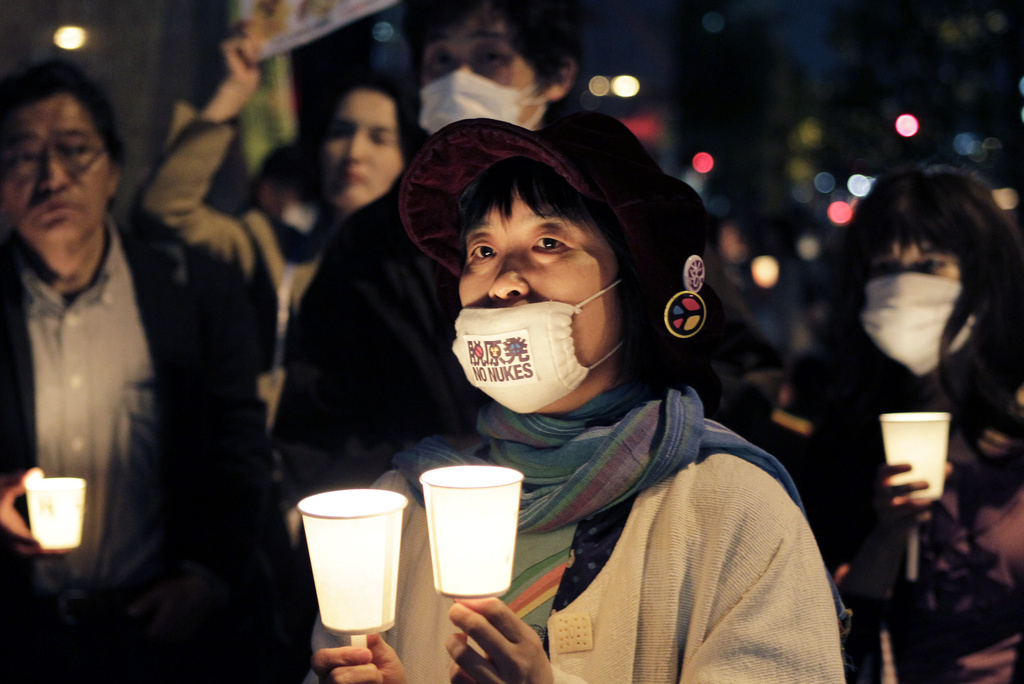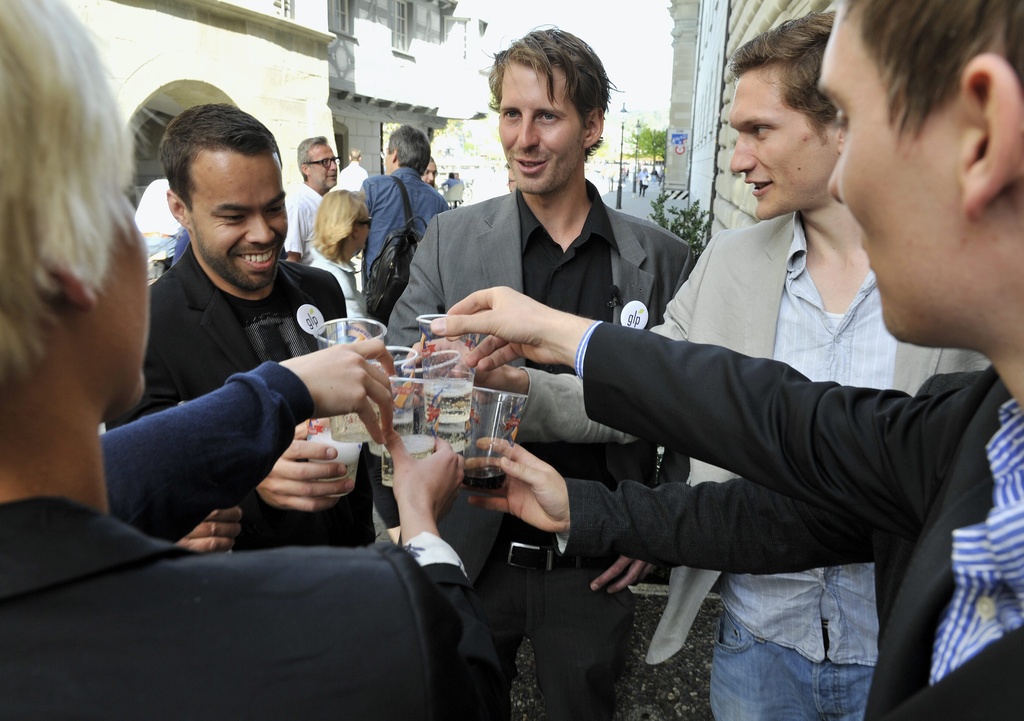Politics takes on a green and fresh look

Two small centre-right parties as well as the Greens and the rightwing Swiss People’s Party appear to be the main beneficiaries of the current political debate in Switzerland.
The latest election barometer, compiled and published by the leading gfs.bern research and polling institute, says environmental issues are back at the top of the public agenda.
The main findings of the nationwide survey ahead of the October 23 parliamentary elections are in line with results of recent ballots in several cantons which saw the Greens, the more centrist Liberal Greens as well as the People’s Party and their more moderate split-off, the Conservative Democratic Party, doing well.
But political scientist and institute director Claude Longchamp qualifies what has been known as the Fukushima impact – named after the site of the destroyed nuclear power plant in Japan.
“There is no general Fukushima impact. We have to make a distinction between problem awareness, voting intentions and expected turnout,” Longchamp said.
He cautions against reading too much into the result of the latest election barometer – the third since October.
The political climate is often exaggerated by the media and prone to fluctuations, according to Longchamp.
He recalls that the first parliamentary poll was marked by the elections of two new cabinet members in October 2010, while the debate over foreign criminals was the underlying theme of the second survey in January this year.
To what extent the fallout from the Fukushima disaster will still be a public issue remains to be seen, says political scientist Martina Imfeld, who co-authored the study.
“We can assume that discussions over nuclear power will continue but it is not clear what impact they will have on the elections.”
Limited impact
Looking back at cantonal ballots over the past few weeks there are obvious indications that Fukushima’s impact has been limited.
“There was no mass mobilisation and turnout dropped slightly,” Longchamp commented.
Of the main parties, three out of four did not appear to benefit from increased voter backing. And paradoxically the People’s Party publicly denied the importance of the nuclear debate and still managed to win support.
As the authors of the survey point out, environmental issues were a top priority for many citizens – at least in April.
But against the backdrop of a nationalist political climate, immigration remains a very important issue, with health and job security also concerns in areas other than the majority German-speaking language regions.
“Unemployment and rising health costs are top of people’s minds in the French- and the Italian-speaking parts of the country,” the report says.
The authors do not exclude that new issues could emerge to influence the election campaign over the next six months, possibly with the help of the media.
But the experts say that unlike Fukushima the political changes in North Africa are unlikely to have much of an impact.
“There is no emotional and sensational element for Switzerland,” said Longchamp.
Novelty
At the moment it appears that the People’s Party is capable of holding on to a lead of more than 12 per cent over its main rival, the centre-left Social Democrats. (For detailed figures see chart)
The two other main parties, the centre-right Radicals and to a large degree also the Christian Democrats are losing their appeal.
“New parties are in, parties at the opposite ends of the political spectrum are in, at the expense of those in the centre,” said, Longchamp summarising the results.
He notes that the pattern in Switzerland, known for a highly polarised party system four years ago, might be turning into “segmented pluralism”.
The polarisation might be reaching its limits. There are now seven well-established parties, – five of them represented in government – and the order has remained unchanged,” noted Longchamp.
Top two mentions in survey:
1. Environment (climate, natural disaster) 47%
2. Migration, foreigners, integration, asylum 33%
3. Health costs (insurance) 17%
4. Social security (pensions, poverty) 16%
5. Unemployment 15%
6. Europe and EU 7%
7. Family issues 5%
8. Economy (inflation, recession, growth) 5%
9. Salaries 5%
10. Tax and finances 4%
The survey is based on telephone interviews carried out between April 4 to April 16 with 2011 citizens across the country.
The Swiss Abroad community was not included in the poll.
The margin of error is 2.2%.
It is the third in a series of seven studies conducted by the gfs.bern research and polling institute on behalf of the Swiss Broadcasting Company, swissinfo.ch’s parent company.
The parliamentary elections are scheduled for October 23.

In compliance with the JTI standards
More: SWI swissinfo.ch certified by the Journalism Trust Initiative




You can find an overview of ongoing debates with our journalists here. Please join us!
If you want to start a conversation about a topic raised in this article or want to report factual errors, email us at english@swissinfo.ch.